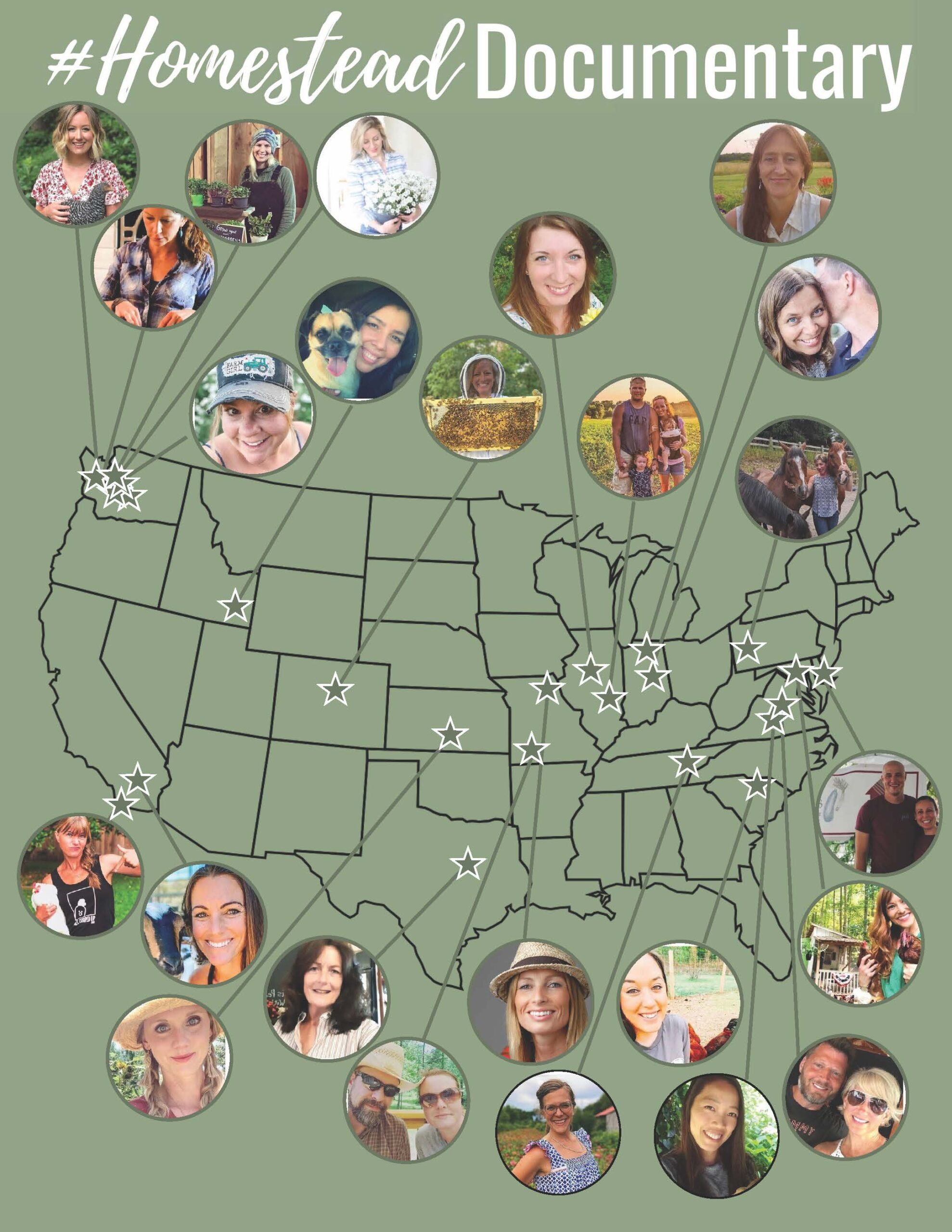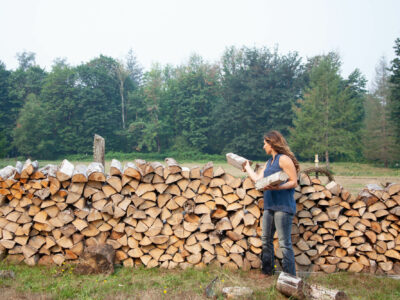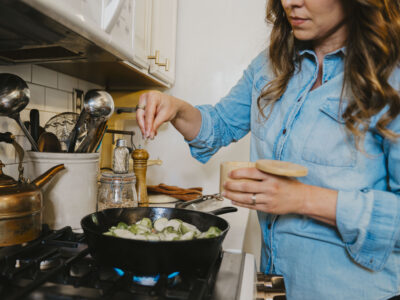How do you connect and learn from other homesteaders when you don’t know anyone directly around you who is living a homestead lifestyle?
One of the problems of homesteading is we often feel alone outside our immediate household. Learning and being part of a community is important and the Homestead Documentary is one way to do just that.
I’m chatting with Carrie Wilson discussing everything you need to know about the Homestead Documentary Project. We’re discussing what it is, who can benefit from it, where to watch, and where to find more info.
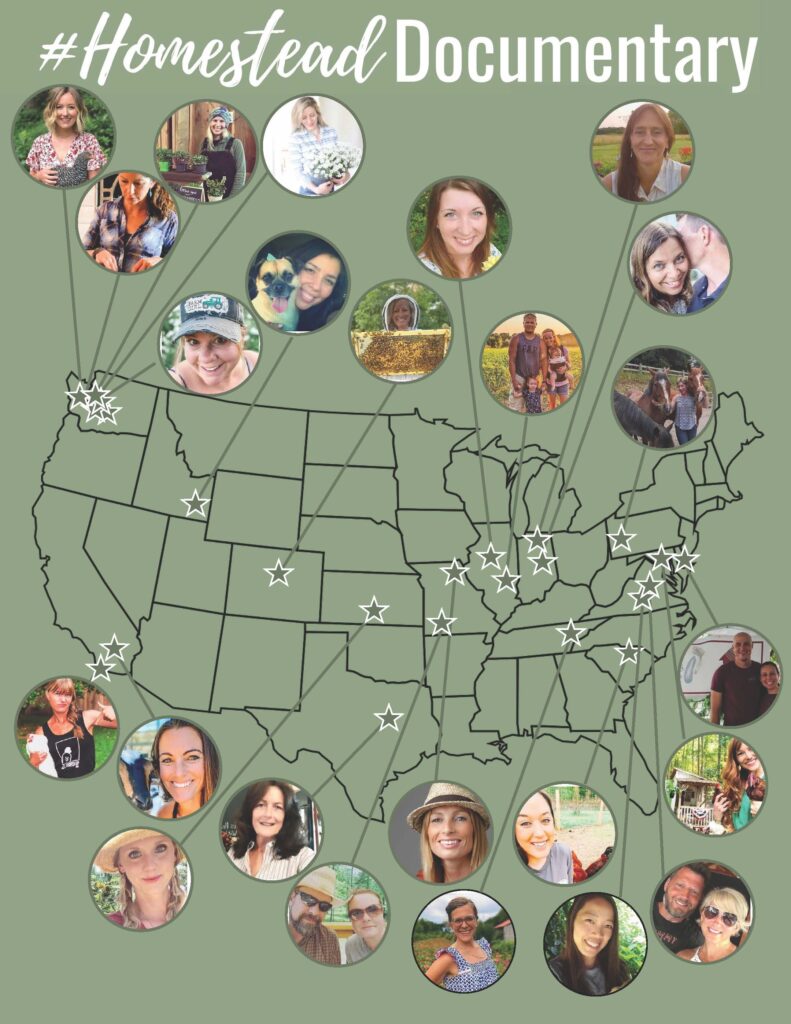
Table of Contents[Hide][Show]
- What is the Homestead Documentary Project
- What inspired the Homestead Documentary Project?
- Who is the Homestead Documentary For?
- What Will I Learn from the Homestead Documentary Project?
- The Homesteading Conundrum
- How Homesteading Has Changed
- Passion to Profit
- How to Get Involved in The Homestead Documentary Project
- More Homesteading Posts
What is the Homestead Documentary Project
The Homestead Documentary Project tells the grass-roots stories of homesteaders from across the US. It shares the stories of what these family’s homesteads look like, how they got started, and how they make it all work.
Documenting what people are producing, how it’s sustaining their livelihood, and in some instances, how it’s earning an income for them.
There are many people pursuing this homesteading lifestyle, and we know there are many who want to see all the different ways to make this lifestyle work. In fact, these documentaries are answering the questions many of us homesteaders had when we first started with our homesteading journey.
When Carrie was getting started at Little Pallet Farmhouse, she didn’t know where to look or know who she wanted to learn from.
Many homesteaders who have found the Homestead Documentary Project have said it’s introduced them to other homesteaders and given them a lot of ideas to implement.
Homesteading is a state of mind, and most homesteaders pretty much have the same goals of raising our own food that’s clean and good for our family and being more self-sufficient.
But just because we have the same goals, we’re oftentimes coming about it from different angles. There are also so many types of homesteaders (rural, small acreage, large acreage, apartment homesteading, etc.).
But we can all learn something from one another, bring that information home, and adjust to what works for us. If you’re never exposed to these ideas, however, it’s difficult to come up with everything on your own.
This is exactly where Carrie hopes the Homestead Documentary Project will fill that gap.
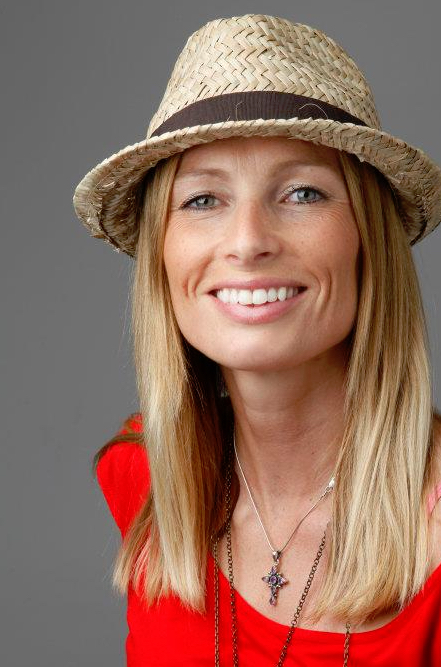
What inspired the Homestead Documentary Project?
The backstory is based upon two needs that Carrie had when her family first started homesteading. They’ve now been homesteading for two years and have relocated to the states from the UK.
When they got to the U.S., Carrie’s husband got a day job and left the homestead leaving Carrie to run the day-to-day. She felt out of her element trying to manage the homestead during the day while her husband was gone, but it didn’t seem they had any options.
Where she lives, they’re surrounded by very large farms. These farms are not small homesteads, but rather larger corporations farming for business. In other words, they weren’t the people to go to for tips on running a homestead.
Because Carrie and her husband wanted to learn how to support themselves and provide food for the freezer, etc., and because she couldn’t find people locally to learn from, she had to turn online.
She had to sift through so many online resources which sprung a desire in her to make homesteading more approachable and more connected, even if over the internet. Thus, the Homestead Documentary Project was born and serves the purpose of filling a need she had for direction, but also fulfilling her extroverted nature.
Not everyone in the Homestead Documentary is doing all aspects of homesteading, but some of them have started with a garden, or maybe raising their own meat, and layering on as they’re able.
The goal is to help homesteaders connect with other homesteaders to learn more about different aspects of homesteading.
Who is the Homestead Documentary For?
This documentary is for anyone with a desire for homesteading, living more self-sufficient lives, or even those who have a specific passion when it comes to the homesteading lifestyle.
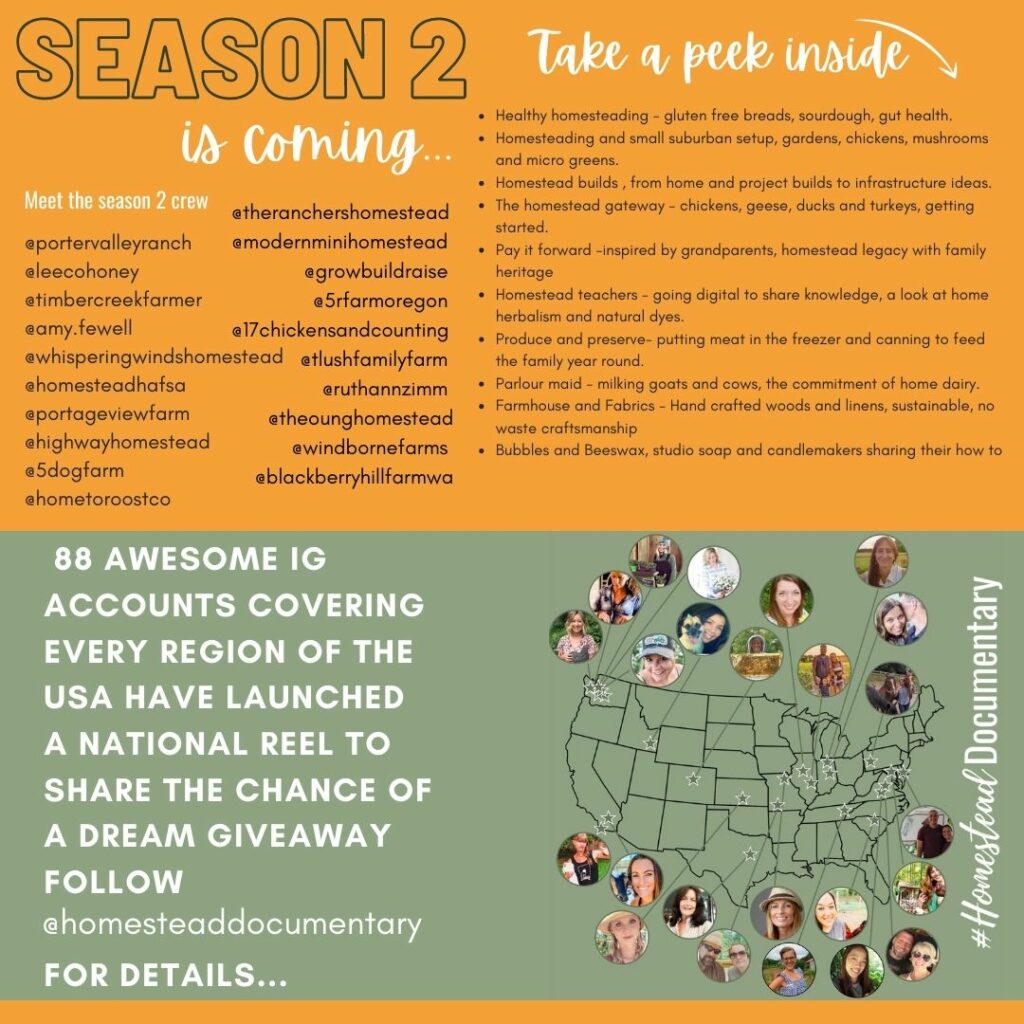
What Will I Learn from the Homestead Documentary Project?
What I love about this documentary series is that each season has a theme. Season one was all about making money through homesteading.
Season two (which is currently being filmed/edited and set to release in December 2021) is about areas of homesteading passion. The second season two takes a closer look at some of the specifics of homesteading (milking goats, preserving the harvest, gardening, etc.) and allows people to connect with other homesteaders based on a particular skill, niche or passion.
Each episode weaves together the lives of two to three homesteaders who are specifically focused on a unique niche of homesteading.
The Homesteading Conundrum
The bigger overarching thing that the Homestead Documentary Project deals with is a struggle that many people face of not having enough money to support a fully-functioning homestead.
As I mentioned above, Carrie’s husband needed to go to work to support their family. But Carrie needed him home to get the homestead functioning properly to a place where it could sustain them.
So the conundrum they’ve seen with many homesteads is that the husband goes off to work to support the family/homestead, but the homestead needs the husband there to function properly and earn an income.
The goal is to figure out how to get the husband home as quickly as possible.
How Homesteading Has Changed
It’s interesting to look at the evolution of homesteading back from when my grandparents moved to Washington State from Appalachia and who homesteaded based out of necessity during the Great Depression.
Fast forward and it seems like people need to have a full-time income outside the home to even support their dreams of homesteading.
It just seems strange that things have changed so much, but truly, my husband and I both worked off of the homestead the first 20 years of our homesteading life. We had stripped down to where there was no more money we could save by skimping, but we just needed more money coming in to make ends meet.
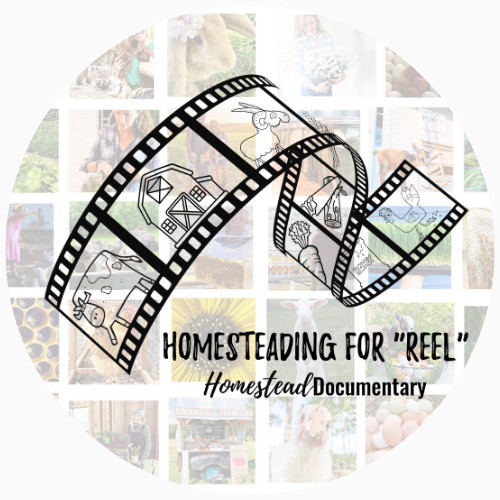
Passion to Profit
Carrie shares that people produce the most incredible content on what they’re most passionate about. She sees people who are creating amazing content, then asks herself how are they monetizing it, or making it “work” by bringing in an income.
Because we have access to the internet we have the opportunity to give people a window into our lives, to see what we’re doing, and inspire them to create something on their own. This is exactly what I do here at Melissa K Norris, through my podcast Pioneering Today, and through my online membership at the Pioneering Today Academy.
It can, however, easily lead to burnout because we oftentimes feel like we’re pouring out our heart and soul sharing our passion with people without getting anything in return.
Carrie’s Passion to Profit project is to shine a light on these people! There are definitely people who are willing to support these online businesses in any way they can because they appreciate the value of all the things offered for free.
The beauty of these online businesses is that there are literally 2 billion users online, so there is plenty of space for creators in this digital marketplace.
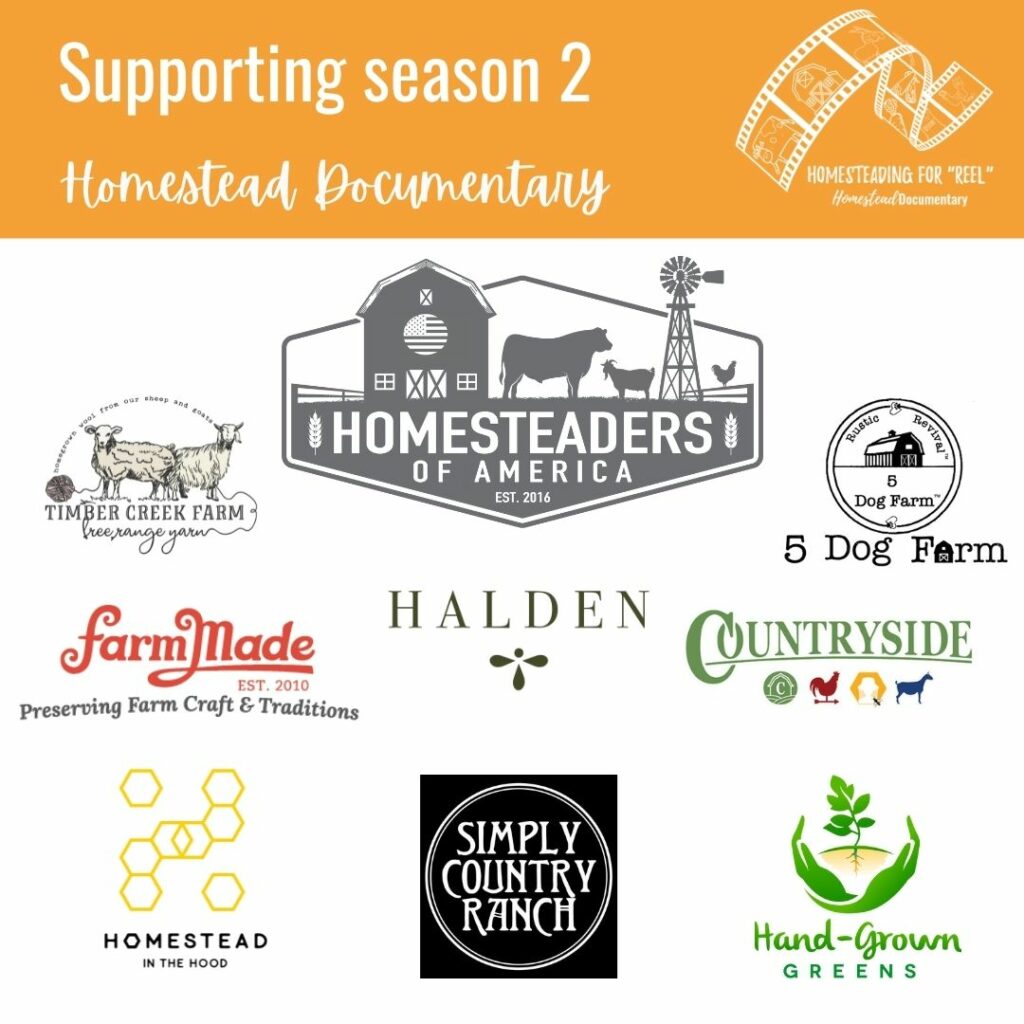
How to Get Involved in The Homestead Documentary Project
At this point in time, the best way to support this project is to go to watch the Homestead Documentary Project episodes.
This project takes many man-hours to produce, edit and get this documentary out to the world. They may, in the future, do another Kickstarter campaign that allows people to pledge a donation to go toward the funding of the project.
If you feel led to reach out to Carrie, or to support their endeavors, you can email her at [email protected].
More Homesteading Posts
Want to learn more from other homesteaders? Check out these podcast interviews on all different homesteading topics, plus other relevant posts from me below:
- The Norris Farmstead: Our 40-Acre Homestead Farm-Stay
- Maximizing Your Homestead for Profit with Joel Salatin
- Aquaponic Gardening & Raising Tilapia with VW Family Farms
- Tips for Homesteading Off-Grid & Life w/out a Fridge or Running Water
- Creating a Homestead Business That Makes Money
- Raising Sheep for Fiber & Naturally Dyeing Wool
- Urban Homesteading – Tips for Small Space Self-Sufficiency
- Living Like it’s the 1800’s – Wood Stove Cooking & Frugal Living Tips
- How Homesteading Helped Lyme Disease Recovery
- Biggest Homestead Mistakes We Made & What to Avoid
- How to Find & Buy Land Beyond the Usual Routes
- What to do When Homesteading Gets Tough
- How to Buy a Homestead – What to Look For
- How to Get Everything Done in a Day Without Wasting Time or Getting Distracted
- Eating a Year of Hand Harvested Food with Alexia
[fusebox_transcript]
